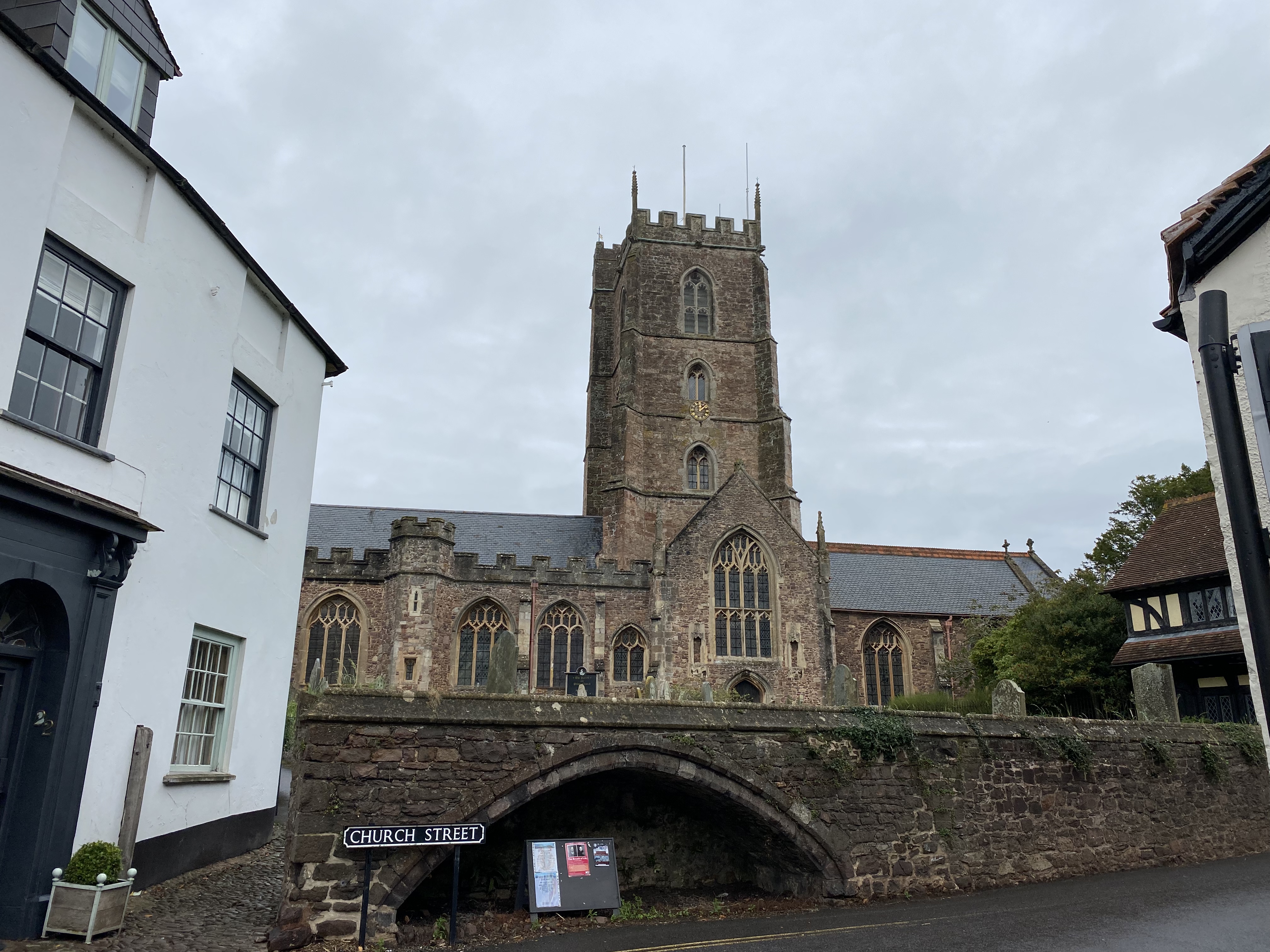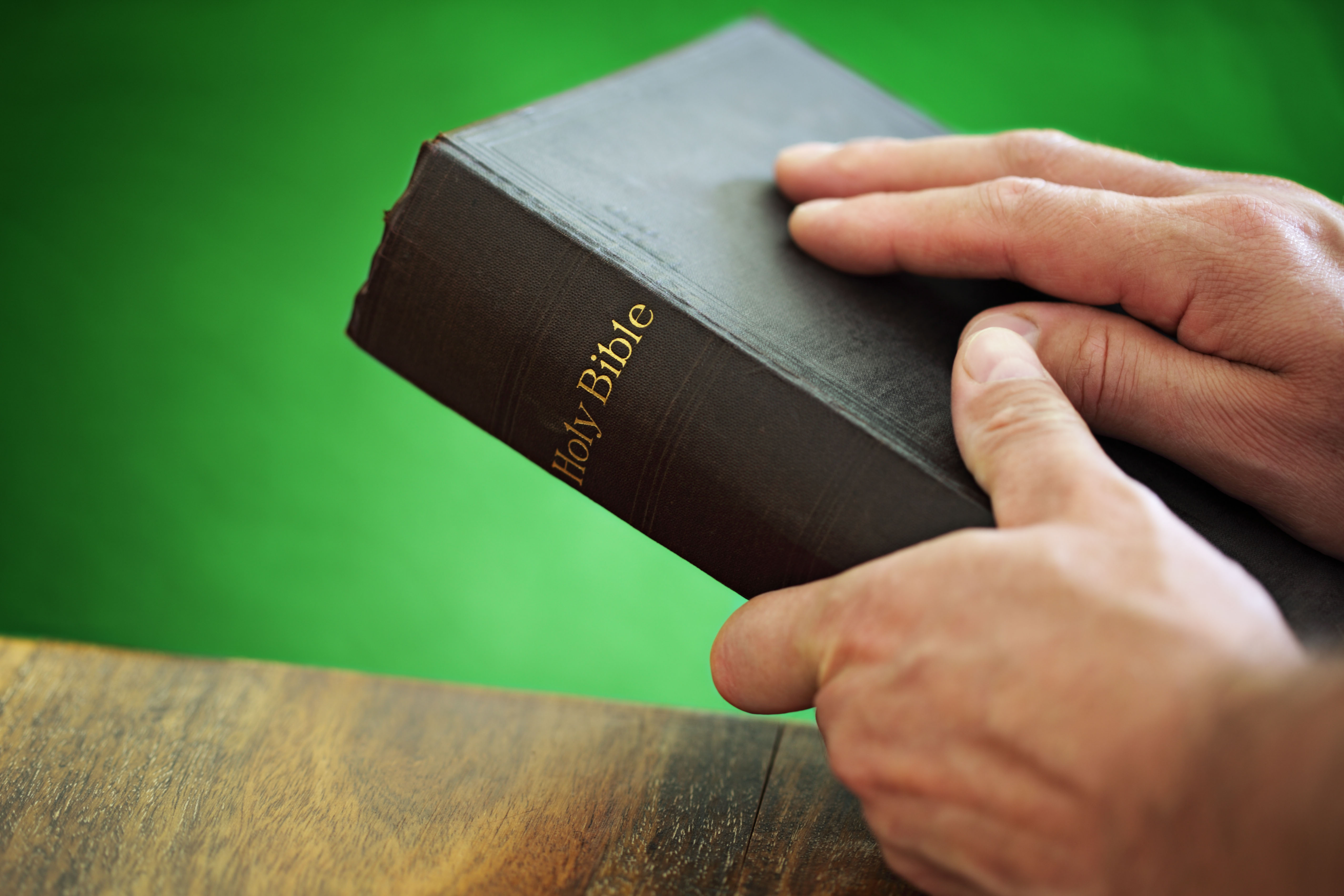On Sunday 28 October this year, the Bible Society celebrates its annual Bible Sunday. The inspiration for the foundation of a Bible Society came from a 15 year old Welsh girl called Mary Jones. She went to her local chapel weekly and was so enthralled by the stories that she heard from the Bible that at nine years of age she decided to save up her money until she had enough to buy her own bible. It took her six years and then she had to walk 26 miles to Bala to be able to purchase it from the Rev’d Thomas Charles, who on the advice of her teacher she was assured would be able to sell her a Bible in Welsh. Arriving in Bala after the long journey, she was saddened to hear that Charles had no bibles to sell that day but he arranged for her to stay the night in Bala until more bibles came. He was so impressed by Mary’s passion to own a bible that he sold her one and gave her two extra bibles to take back home and share.
Mary’s story came to the notice of Rev’d Joseph Hughes, a Welsh pastor. Hearing the story he realised that there was a need for Bibles that were accessible, not only for a reasonable price but also in the local language and so he along with others including William Wilberforce, inaugurated the British and Foreign Bible Society in 1804.
Today the Bible Society may be most well known in ecumenical circles for “Open the Book”. This is a structured programme of bible stories to share in schools. The stories are acted out both by trained volunteers and the children and then there is an invitation to consider certain aspects of the story. In story 55, The Calling of the Disciples, the children are asked to imagine throwing out the nets upon the sea like the disciples. It will echo with those who are familiar with Ignatian spirituality of placing yourself in a story and listening to God through the words of the scripture. Then when the story has been told, there is space to reflect upon what has been heard. Using the phrase, “I wonder”, children are asked to ponder upon the feelings invoked in the story: “After a long night of fishing and catching nothing, I wonder how it felt to catch so many fish when they threw their nets back in, as Jesus asked them to”.
There are similarities here to Jerome Berryman’s programme of sharing the Bible with children, called Godly Play. The purpose of these story telling techniques is to help children feel more confident in their understanding of the scriptures and to be validated in their responses to what they hear.
For many years as a hospital chaplain, I became used to sharing biblical stories with patients and relatives. My focus was to listen to the story of the patient and then offer a story that resonated with their own experience. A woman, given to her grandmother as a new born baby to look after for six months before returning to her mother felt as though her story was reflected in Moses story of moving between his mother and Pharoah’s daughter. The family of a man who was unconscious were comforted by the words of the Transfiguration story; the image of Jesus face changing was akin to their father’s face changing. The cloud coming down and the sleepiness of the disciples was how they could relate to their father’s unconscious state. Their own fear at what was happening drew them closer to the experience of the disciples and finally hearing the words of God, “This is my beloved son”, could be heard as God’s love for their father. The scriptures had been spoken in a way that they could enter into them, find echoes of similarity and find some comfort that their small story was held against the grand narrative of the scriptures.
One of the statements of the Bible society is that they exist to translate the Bible to “make it accessible in people's heart languages”. It suggests not only the importance of being able to read scripture in a native language but also to be stirred in heart and spirit by what is being read. Pope Francis indicated a similar desire for Catholics to feel more at home with the Bible when he instituted in his Apostolic Letter Aperuit illis in 2019 on the annual celebration of Sunday of the Word of God, on the Third Sunday in Ordinary Time, as an occasion to focus on how the “Lord opens up for us the treasury of his word and enables us to proclaim its unfathomable riches before the world.” To facilitate this the Bible Society partnered with the Catholic Church in England and Wales to promote resources under the banner “The God Who Speaks”. Whilst many more resources are now available via the internet, still Christians can lack confidence in their own ability to share stories.
At a recent bible study course for Anglicans and Catholics, participants were asked to tell a bible story that they remembered, to two other people. Each person in the triplet had to share a story. When asked afterwards what that experience was like, there were comments such as “I wasn’t sure I had remembered it correctly” and “I was nervous telling others the story in case they didn’t want to listen to me”. When it was noted that the early disciples probably had similar feelings, the group were amazed. Surely the disciples were filled with the Holy Spirit and could speak boldly, they pondered. As the weeks went by, the group recognised that their response to the Scriptures were valid. It empowered them as they were asked to share a bible story with a family member of friend outside of the group.
The Bible Society offers a myriad of paths to engage us and others with Scripture. They are keen to engage politicians and artists in the public arena as well as offering resources for painful and troubling times such as their series of talks by female scholars on the abuse and violence done to women in the Scriptures in the films #Shetoo.
Placing Scripture alongside our own experiences can open up all sorts of connections and lead to a deeper prayer life with a sense that if God is in the big stories, God might also be in our own small stories. To enable this to happen, Scriptural language also matters and translations need to be as inclusive as possible. Recent debates about whether “adelphoi” means brothers and sisters or only brothers now seems to have been resolved as reported by The Tablet in 2021: “The translation of the Bible to be used in the new edition of the lectionary for Mass in England and Wales is being amended to use gender-inclusive language where contextually appropriate.” This matters hugely. If women in congregations today cannot hear that their sisters were important in the churches at Philippi, Corinth and Galatia, why we would expect them to have confidence in sharing Scriptures in their own communities today. Finding ourselves in Scripture through language and story is what will deepen our own spiritual lives and empower us to share stories with others.
A man who came to the hospice for pain relief had spent much of his life in prison. He was concerned that he could not possible go to heaven because of his crime. I shared with him the story of the Prodigal Son noting that the Father was looking out each day for his son to return to him. I said that is how God has been with him, waiting for this moment when he had turned around and found his way back to God. We prayed and he said he felt a weight had been lifted from him. Returning the next day to see him, he asked me if I was sure God would accept him. We talked a bit more and he said a cleaner at a hostel he lived in had once taken him to church where they “did this thing with bread and wine”. He asked if we could do that again sometime. I went off to the chapel for the Blessed Sacrament and laid the host and filled the tiny chalice and then I told him the second part of the story. The Father is so pleased that his son has returned that he gives a party and sets a feast. And then I said, that is what God has gone here today. He has given us a feast because you have returned to him. His eyes widened and in surprise he said, “Wow! Are we all in the Bible?”
Yes. We are all in the Bible in various stories at different times of our lives. We are all invited to find ourselves in the Scriptures and then to share those stories with others.
Rev’d Caroline Worsfold is an Anglican priest who worked as a chaplain in the NHS for over 30 years. She work now as a psychotherapist in private practice and continue to work in local parishes as a priest. She lives in Stockton on Tees.



 Loading ...
Loading ...
What do you think?
You can post as a subscriber user ...
User comments (0)